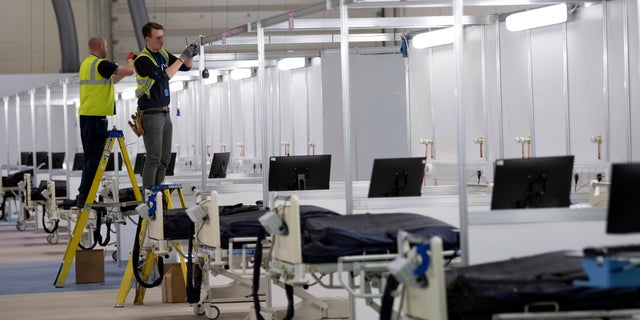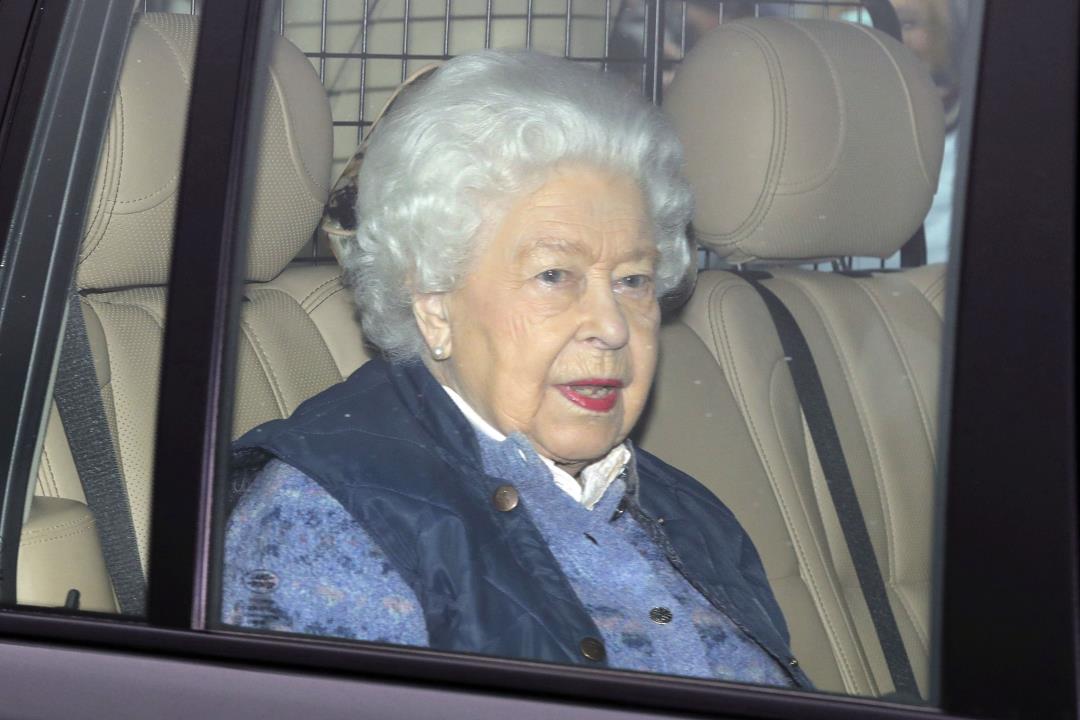Although Thomas Harvey never got a test for
Covid-19 before he died, an NHS Trust confirmed to CNN that he had picked up the virus. According to his daughter, the 57-year-old health care assistant was let down by both the hospital where he helped care for recovering stroke patients, and by emergency responders.
Tamira alleges that London's Goodmayes Hospital failed to provide necessary personal protective equipment (PPE) to her father. And just a few days before Harvey's death, emergency services "refused" to come to take him to hospital, Tamira says, despite family concerns that he wasn't "breathing properly."
The NHS trust responsible for the hospital where Thomas worked told CNN on Wednesday that there were no symptomatic patients when Thomas Harvey went off work sick, and that it has been following national PPE guidance. CNN reached out to NHS England, which leads the public health service in England and oversees emergency services, via phone and email and has yet to receive a response.
The London Ambulance Service (LAS) did not respond directly to Tamira's claims that they "refused" to take Thomas Harvey to the hospital. They did however, confirm that they were "seeing unprecedented demand" for both their 999 and 111 services at this time, with more than 8,000 calls coming into their 999 control rooms each day. Additionally, when they were called on the day of Harvey's death, medics arrived in "six minutes," the LAS said.
But Tamira remains adamant that the blame for her father's death should ultimately lie in the hands of the UK government.
She believes that Harvey picked up the virus at work due to a lack of PPE. Before he died, he told Tamira that the protective equipment supplied wasn't substantial. "He told me on the ward they only had flimsy aprons and gloves," she said. She says she is now concerned for the welfare of other medical professionals and patients at the Hospital.
The novel coronavirus pandemic is now hitting the UK hard, with more than 34,000 recorded cases and the country's death toll rising to more than 2,900, according to
Johns Hopkins University figures.
The UK government is also under growing pressure after it admitted on Wednesday that fewer than 3,000 frontline health care workers, out of around 500,000, had been tested. UK Prime Minister Boris Johnson said the government planned to "massively" increase testing to try and solve the "coronavirus puzzle" on Wednesday night.
'He always wanted to put others before himself'
When Harvey collapsed in the bathroom at this home in Hackney, London on March 29, family members had to use an ax to break down the door to reach him. Police and paramedics soon arrived to assist but the 57-year-old went into cardiac arrest and died in his living room.
Tamira described the whole experience as "devastating" but she does not fault the effort of the police and the paramedics in their attempts to save her father's life on March 29. She is, however, critical of the fact that he wasn't tested for the virus, and angry that more was not done to prevent his death.
"I think he was neglected from the start. It's just a tragedy... It's a mixture of emotions. Loads of questions of why and how this happened. The fact he wasn't tested, none of us were tested. My mother is overwhelmed as they have been together for so long and she has lost her best friend," she told CNN.
Harvey initially thought he had the flu. Then, in mid-March, his condition rapidly deteriorated, said Tamira. His breathing was heavy, he lost his appetite and gradually he resorted to hand actions to tell his family to stay clear -- because he was finding it so difficult to speak.
"His breathing woke me up from my sleep because it was really loud... He was breathing like a car that was on its last legs," she said.
A few days before his death, the father-of-seven confined himself to the living room and isolated himself away from his family -- in an effort to stop them catching the virus. "He always wanted to look after people. He always wanted to put others before himself," Tamira said in an emotional interview.
In the early hours of March 29, Tamira's brother heard Harvey leave the living room and move towards the toilet. When his wife went to check in on him, he had collapsed. The way Harvey had fallen had blocked the door and meant the family couldn't immediately reach him to help, Tamira said.
"I told my mum to get an ax we had for like chopping meat and she chopped down the door. We were taking off the top half of it. We made a little hole and my brother just started punching the door and breaking the door with his bare hands," she said.
"The police arrived and took down the rest of the door. My brother and police moved him into the living room. Then he went into cardiac arrest. They tried to resuscitate him a few times. They tried really hard ... they did their best. They were there for a good hour trying to bring him back."
Tamira criticized what she described as emergency responders' failure to do more to help her father earlier. In total, she says the family called 999 on three occasions. On March 22, paramedics did make the trip to come and treat Harvey.
A few days before his death, on March 26, the family called for a second time to try and get Harvey into a hospital to access more specialized care, but were instead directed online. "He was neglected on the second account we called paramedics -- they told us to go online. How is that going to help someone who is not breathing?" said Tamira.
The third was the day of his death. "Sadly, despite the best efforts of our staff, the patient died at the scene. We would like to express our sympathy to the family at this very difficult time," a spokesperson for the London Ambulance Service (LAS) said.
LAS confirmed to CNN that it made two trips to Harvey's home, but did not respond to Tamira's allegations that they "refused" to come once.
A
GoFundMe page set up to help support the Harvey family with funeral expenses has already raised more than £23,000 ($28,400).
The family now wants to share his story to raise awareness of just how severe they believe Covid-19 to be. "We need to take this more seriously. Some people are treating it like it's the flu but it's just unexpected -- it just creeps up on you. People need to understand the severity," Tamira stressed.
"I feel like he really wanted to stay with us and he tried his best, that is why it's so devastating. It wasn't his time. He fought really hard for his life."
https://news.google.com/__i/rss/rd/articles/CBMiUmh0dHBzOi8vd3d3LmNubi5jb20vMjAyMC8wNC8wMy91ay90aG9tYXMtaGFydmV5LXVrLWNvcm9uYXZpcnVzLWludGwtZ2JyL2luZGV4Lmh0bWzSAVZodHRwczovL2FtcC5jbm4uY29tL2Nubi8yMDIwLzA0LzAzL3VrL3Rob21hcy1oYXJ2ZXktdWstY29yb25hdmlydXMtaW50bC1nYnIvaW5kZXguaHRtbA?oc=5






